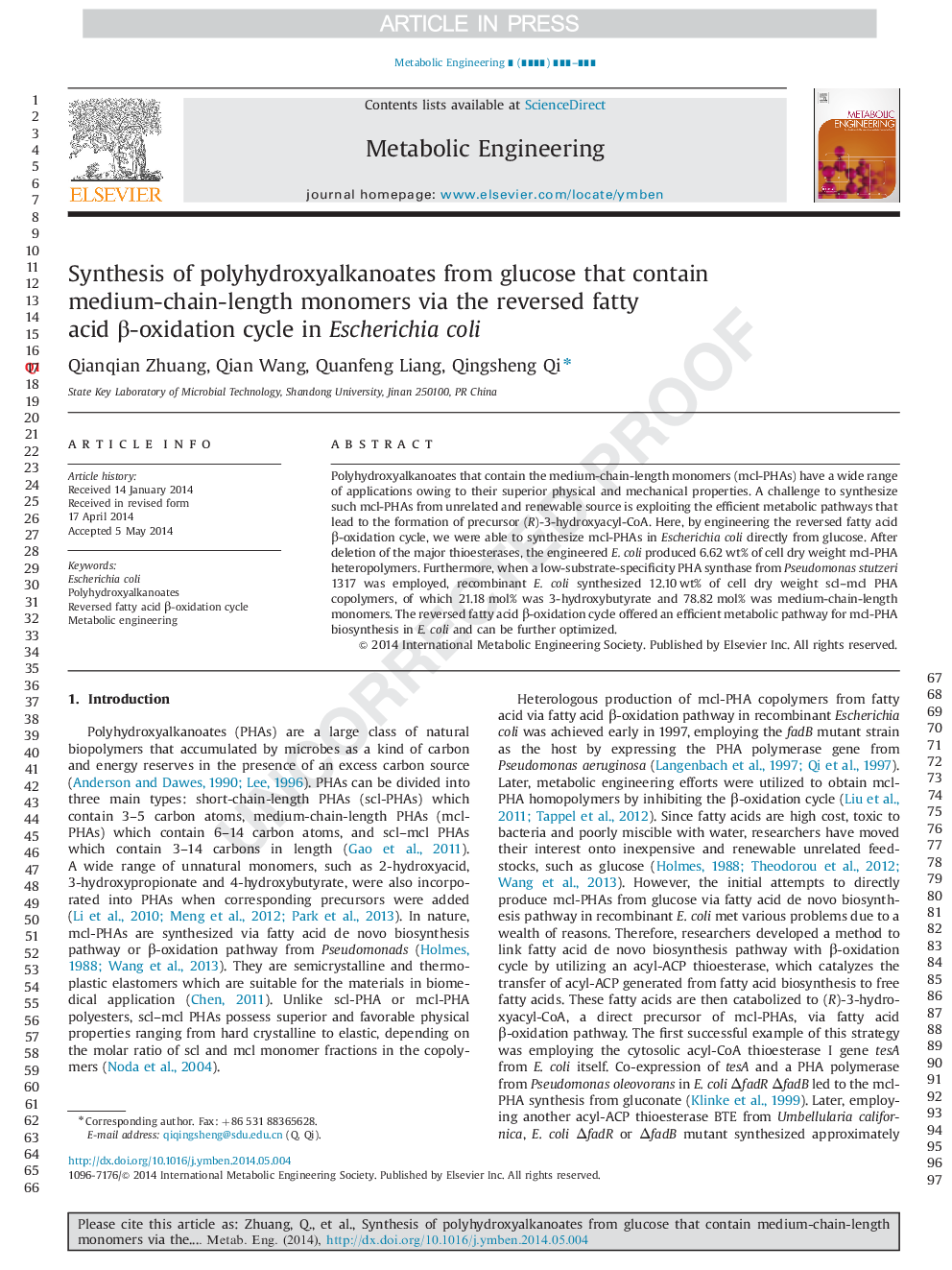| Article ID | Journal | Published Year | Pages | File Type |
|---|---|---|---|---|
| 6494596 | Metabolic Engineering | 2014 | 9 Pages |
Abstract
Polyhydroxyalkanoates that contain the medium-chain-length monomers (mcl-PHAs) have a wide range of applications owing to their superior physical and mechanical properties. A challenge to synthesize such mcl-PHAs from unrelated and renewable sources is exploiting the efficient metabolic pathways that lead to the formation of precursor (R)-3-hydroxyacyl-CoA. Here, by engineering the reversed fatty acid β-oxidation cycle, we were able to synthesize mcl-PHAs in Escherichia coli directly from glucose. After deletion of the major thioesterases, the engineered E. coli produced 6.62 wt% of cell dry weight mcl-PHA heteropolymers. Furthermore, when a low-substrate-specificity PHA synthase from Pseudomonas stutzeri 1317 was employed, recombinant E. coli synthesized 12.10 wt% of cell dry weight scl-mcl PHA copolymers, of which 21.18 mol% was 3-hydroxybutyrate and 78.82 mol% was medium-chain-length monomers. The reversed fatty acid β-oxidation cycle offered an efficient metabolic pathway for mcl-PHA biosynthesis in E. coli and can be further optimized.
Related Topics
Physical Sciences and Engineering
Chemical Engineering
Bioengineering
Authors
Qianqian Zhuang, Qian Wang, Quanfeng Liang, Qingsheng Qi,
